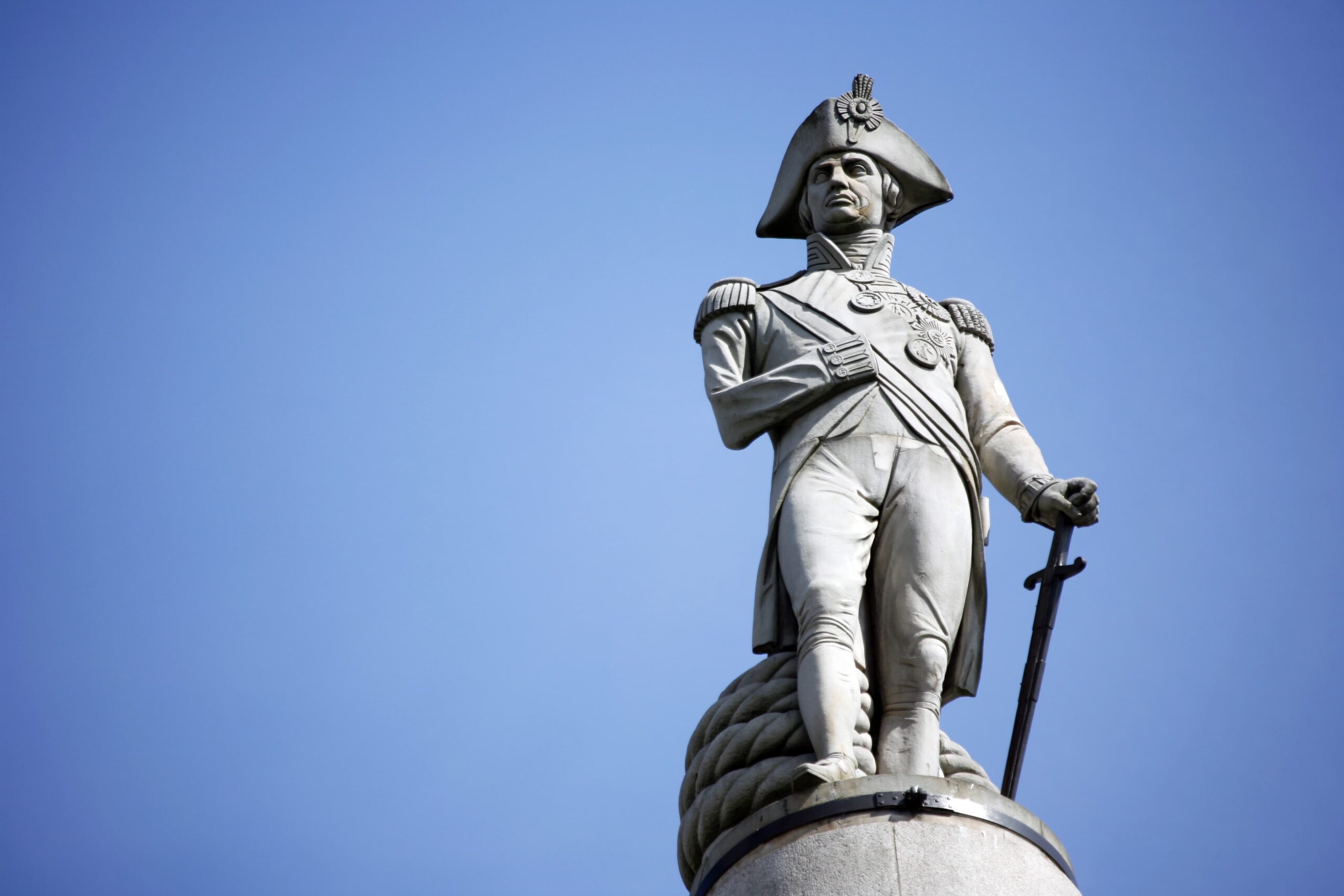
Lord Horatio Nelson, 1st Viscount Nelson, 1st Duke of Bronte, was Britain’s greatest naval commander, famous for his naval victories during the Napoleonic Wars. He fought with vigour and imagination, often out-manoeuvring his enemies with tactics and strategies that no-one had used before.
Here, we have everything you need to know about the life of this national hero…
Early Life
Horatio Nelson was born on 29th September 1758 at Burnham Thorpe, Norfolk. He is the sixth out of eleven children of Reverend Edmund Nelson and Catherine Suckling. Nelson attended school until 1771, but then dropped out to begin his naval career at just twelve years old. His uncle, Captain Maurice Suckling, was a high-ranking naval officer who Nelson reported to as an ordinary seaman and coxswain on the HMS Raisonnable.
Not long after the beginning of his career, Nelson was appointed a midshipman and started officer training. By the age of 20, Nelson had become a captain and served aboard through the West Indies, Baltic and Canada.
Royal Navy
Nelson was given command of the Agamemnon during the French Revolutionary Wars in 1793. He was courageous when out at sea leading “from the front”, resulting in the loss of an eye while defending Corsica during the battle at Calvi in 1793, and then the loss of an arm at the Battle of Santa Cruz in Tenerife in 1797. His decisive victories secured Britain’s dominance of the seas for more than a century, which in turn enabled the expansion of Britain’s trading empire right around the globe.
His defiance bought him victories during the Battle of Cape St Vincent in 1797, as well as the Battle of Copenhagen in 1802. One of the greatest victories of Nelson’s career however was his defeat of the Napoleon’s navy at the Battle of the Nile in August 1798. This was more than just ‘a win’ though; Nelson destroyed much of the fleet pitted against him. Historians at the Royal Navy call it “the most overwhelming naval victory in the age of sail”.
Under his leadership, the Royal Navy reigned supreme over the French. Nelson’s most famous encounter, the Battle of Trafalgar in 1805, saved Britain from a Napoleon invasion. Before the battle commenced, Nelson sent out the famous signal “England expects that every man will do his duty”. This battle would be Nelson’s last, as he was killed during the attack by a French sniper.
Marriage and Children
Whilst overseas in Nevis, Nelson met Frances Nisbet, a young widow who had an infant son, Josiah. After multiple visits, Nelson developed an affection for her, and the couple were married on 11 March 1787. Nelson and his wife returned to England in July of that year, dividing their time between Bath and London, before settling at Nelson’s childhood home in Burnham Thorpe.
In 1793, Nelson met Emma Hamilton, wife of the British Envoy Sir William Hamilton, and five years later, she became Nelson’s secretary and translator. The pair soon fell in love and embarked on an extra marital affair. By 1800, Emma had become pregnant by Nelson, and their affair became public knowledge.
Francis offered her husband an ultimatum to choose between her and his mistress; Nelson chose Emma and began the separation proceedings from his wife. On 29th January 1801, Emma gave birth to a daughter, Horatia. Shortly afterwards, Nelson bought Merton Place and they lived there together openly, with Emma’s husband Sir Hamilton and her mother. In 1804, Emma had given birth to a second daughter, who unfortunately passed away 6 weeks after her birth.
After Nelson’s death, Emma was denied permission to attend his funeral. Nelson’s requests for money to be given to Emma and their daughter, Horatia, were also ignored by the government, with Nelson’s money and titles being rewarded only to his legitimate family.
Death
During the Battle of Trafalgar in 1805, Nelson was shot with a musket ball. He was carried below to the cockpit to avoid alarming the other crew members. As the hours passed by, Nelson grew weaker and weaker, but still continued to give out instructions. Three hours after he had been shot, Nelson passed away at 47 years of age.
His body, preserved in a cask of brandy, was transported back to England where he lay in state. On 8th January 1806, Nelson was given a state funeral which lasted more than five days, and was ultimately buried at St Paul’s Cathedral.
You can celebrate Britain’s greatest naval commander with this incredible sovereign range, released to mark the 225th anniversary of Nelson’s victory at the Battle of the Nile, HERE.


